Tips on how to cut your banking charges

In these times of financial uncertainty, when markets are down and jobs are scarce, cost cutting has become the buzzword. Let alone companies, even individuals are looking to cut costs by reducing outings, trips or lavish shopping.
Your savings bank account is another place where you can look to cut costs a lot of it.
Banks levy various charges on transactions ranging from Rs 25 to Rs 1,000. And if you haven't been careful about them, or are not aware of them, in all likelihood they have already burnt a hole in your pocket.
A few steps, however, could help you not repeat the same mistakes this New Year and help you save money. If you ignore them, you will have to pay, literally.
Your savings bank account is another place where you can look to cut costs a lot of it.
Banks levy various charges on transactions ranging from Rs 25 to Rs 1,000. And if you haven't been careful about them, or are not aware of them, in all likelihood they have already burnt a hole in your pocket.
A few steps, however, could help you not repeat the same mistakes this New Year and help you save money. If you ignore them, you will have to pay, literally.
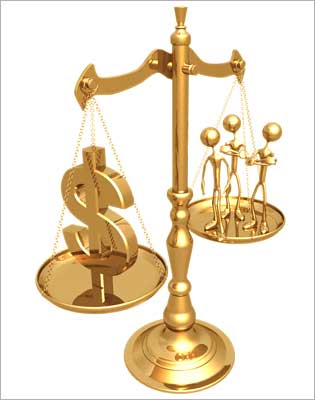
While there is no limit to the number of accounts you can have, it could prove costly to maintain more than one.
Most banks have a minimum balance limit. So, if you have six accounts, you would have to maintain a balance in each of them.
If you don't, you will have to pay a penalty - Rs 750 in most cases. And, you will have to pay that every quarter. So, in a year, you would end up paying Rs 3,000 that, too, for only one account.
If you have more, do your own math to calculate the total losses. If you maintain the balance, you will earn only 3.5 per cent against the 8 per cent that you could earn from a Public Provident Fund, or more through other saving instruments.
That's not all. A few banks levy added transaction charges in case of non-maintenance of minimum balance. Moreover, if you do maintain the minimum balance somehow, but are not using the account, you will pay again because some banks charge an inoperative account fee.
By now, if you are convinced about closing those accounts you don't use or need, be prepared to pay account closing charges.
However, it is better to pay up this one-time charge to avoid future losses. This charge is only for accounts that are six months to a year old.
Most banks have a minimum balance limit. So, if you have six accounts, you would have to maintain a balance in each of them.
If you don't, you will have to pay a penalty - Rs 750 in most cases. And, you will have to pay that every quarter. So, in a year, you would end up paying Rs 3,000 that, too, for only one account.
If you have more, do your own math to calculate the total losses. If you maintain the balance, you will earn only 3.5 per cent against the 8 per cent that you could earn from a Public Provident Fund, or more through other saving instruments.
That's not all. A few banks levy added transaction charges in case of non-maintenance of minimum balance. Moreover, if you do maintain the minimum balance somehow, but are not using the account, you will pay again because some banks charge an inoperative account fee.
By now, if you are convinced about closing those accounts you don't use or need, be prepared to pay account closing charges.
However, it is better to pay up this one-time charge to avoid future losses. This charge is only for accounts that are six months to a year old.
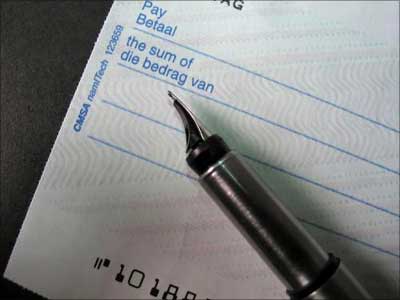
Think twice before you write those cheques, it may be better to use cash instead.
Most banks do issue at least one cheque book (20-25 leaves) per quarter free of cost if you maintain minimum balance. Otherwise, you pay up. If you want to use more cheque leaves, you will have to pay for each of those.
Also, make sure you have adequate funds before issuing a cheque because a bounced cheque is costly, too.
Most banks do issue at least one cheque book (20-25 leaves) per quarter free of cost if you maintain minimum balance. Otherwise, you pay up. If you want to use more cheque leaves, you will have to pay for each of those.
Also, make sure you have adequate funds before issuing a cheque because a bounced cheque is costly, too.
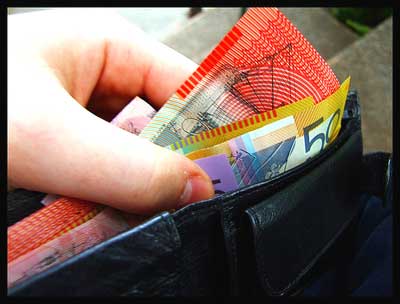
If you do not maintain the minimum balance in your account, you will be liable to pay the penalty charges as well as other charges for various transactions
Penalty charges (per quarter)*
ICICI: Rs 750
HDFC: Rs 750
HSBC: Rs 750
Standard Chartered: Rs 750-1,500
State Bank of India (SBI): Rs 30-55
Kotak Mahindra Rs 150
Charges on transactions
Call To Customer Service (non-IVR)
HDFC: Rs 50 per call
ICICI: Rs 50 per call
Cash transactions at branch
ICICI: Rs 60 per transaction (first 3 transactions per quarter free)
HSBC: Rs 50 per transaction (first 2 transactions per quarter free)
Dormant account
SBI: Rs 30-50 per quarter
Standard Chartered: Rs 1,000 a year
Inoperative account
SBI: Rs 150 per quarter
HSBC: Rs 150 per quarter
Cheque charges
ICICI: Rs 5 per leaf SBI: Rs 2.50 per leaf
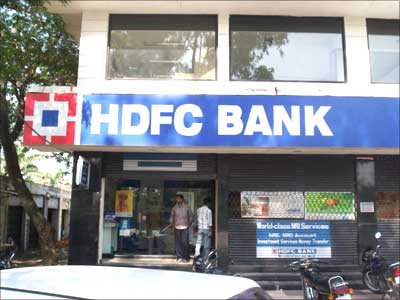
Too many transactions could cost you too, whether they are through ATMs, or over the Internet, or phonebanking, or at the branch. Only a limited number of banking transactions come free of cost per quarter for many banks.
In Standard Chartered, the first four transactions through any channel (Internet banking, phonebanking, ATM or branches) per month are free. However, it charges as high as Rs 75 per transaction, subsequently.
Some banks even charge for repeated visits to the bank branch.
If you pay your credit card bill through cash at a branch, you are fined.
Says a senior executive of a private sector bank: "We want to discourage customers from coming to the branch, hence the fine. The customers can pay the bill through an ATM transaction, which is free." Banks also charge additional fees for banking at a non-base bank.
In Standard Chartered, the first four transactions through any channel (Internet banking, phonebanking, ATM or branches) per month are free. However, it charges as high as Rs 75 per transaction, subsequently.
Some banks even charge for repeated visits to the bank branch.
If you pay your credit card bill through cash at a branch, you are fined.
Says a senior executive of a private sector bank: "We want to discourage customers from coming to the branch, hence the fine. The customers can pay the bill through an ATM transaction, which is free." Banks also charge additional fees for banking at a non-base bank.
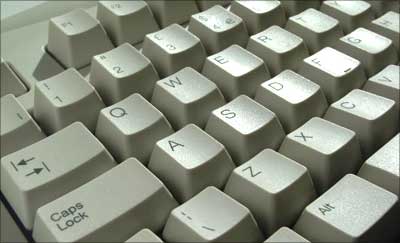
Keeping fewer papers will not only help you save money, but help keep your documents file uncluttered. So, be content with your quarterly account statements and monthly email statements.
A physical monthly statement would cost you Rs 100-200 per year.
Banks even charge you for issuing interest and balance certificates in deposit accounts. A balance certificate gives the balance of a particular day and is used mostly for Visa purposes, while an interest certificate shows the total interest earned on bank deposits and is used at the time of filing income tax returns.
Usually one certificate is issued free of cost every year. Make sure you don't lose it and pay to get a new one.
A physical monthly statement would cost you Rs 100-200 per year.
Banks even charge you for issuing interest and balance certificates in deposit accounts. A balance certificate gives the balance of a particular day and is used mostly for Visa purposes, while an interest certificate shows the total interest earned on bank deposits and is used at the time of filing income tax returns.
Usually one certificate is issued free of cost every year. Make sure you don't lose it and pay to get a new one.
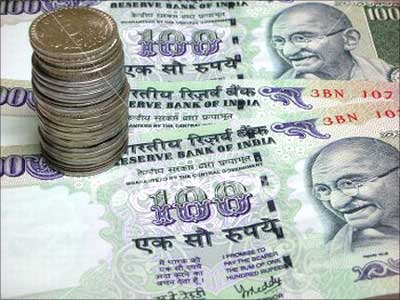
Closing an account
Kotak Mahindra Bank: Rs 600 (within 6 months)
HSBC: Rs 500 (within 6 months)
SBI: Rs 100 (within 1 year)
Urgent cheque issued over the counter
HSBC: Rs 50 per leaf
Payment of credit card bill in cash at branch
ICICI Bank: Rs 100
HDFC Bank: Rs 100
Duplicate statement
Standard Chartered: Rs 100
HDFC Bank: Rs 100 at the branch, Rs 50 through phone banking or ATM, Rs 30 over the Net, mobile banking, IVR
Replacement of ATM/debit card
ICICI Bank: Rs 200 per card
PNB: Rs 100 per card
PIN Regeneration Charges
PNB: Rs 25
ICICI Bank: Rs 25 (free if request through Instapin at branch or IVR customer care)
Duplicate passbook
HDFC Bank: Rs 100
ICICI Bank: Rs 100 (Rs 25 per page for updation)
Stop-payment charges
ICICI Bank: Rs 50 per cheque
HSBC: Rs 100 per request
Unarranged overdraft
HDFC Bank: Rs 100 per transaction plus 18 per cent interest per annum
Cheque returns
ICICI Bank: Rs 100 if a local cheque issued to customer is returned, Rs 300 if the cheque issued by the customer is returned and Rs 750 if the same cheque is redeposited by the customer and is returned again
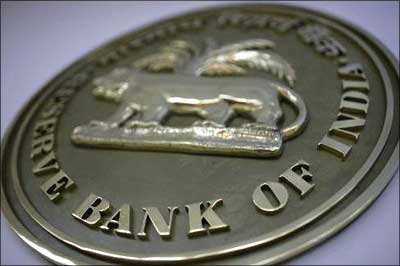
Carelessness is no excuse, especially when you are banking. For instance, if you deposit cash in the cheque drop box, banks will fine you.
Private banks charge Rs 100, and if the deposit amount is over Rs 500, the fine is Rs 300. If you repeat instances of cash deposits in the cheque drop box, you would have to pay an additional Rs 500.
Regeneration of the PIN number of ATM or debit cards costs money in most banks. So, if you can't remember your number, note it down at a safe place. Even replacement of cards attracts a fee.
Subscribing to SMS alerts, bill payment, home banking, duplicate passbook, cheque status, unarranged overdraft, inter-branch transactions and cash delivery are only some of the services which are charged for.
You pay for every personalised service, such as SMS alerts, that you avail from your bank. So, make sure you really need these. And, do remember that there is no such thing as a free service.
Private banks charge Rs 100, and if the deposit amount is over Rs 500, the fine is Rs 300. If you repeat instances of cash deposits in the cheque drop box, you would have to pay an additional Rs 500.
Regeneration of the PIN number of ATM or debit cards costs money in most banks. So, if you can't remember your number, note it down at a safe place. Even replacement of cards attracts a fee.
Subscribing to SMS alerts, bill payment, home banking, duplicate passbook, cheque status, unarranged overdraft, inter-branch transactions and cash delivery are only some of the services which are charged for.
You pay for every personalised service, such as SMS alerts, that you avail from your bank. So, make sure you really need these. And, do remember that there is no such thing as a free service.







Post a Comment